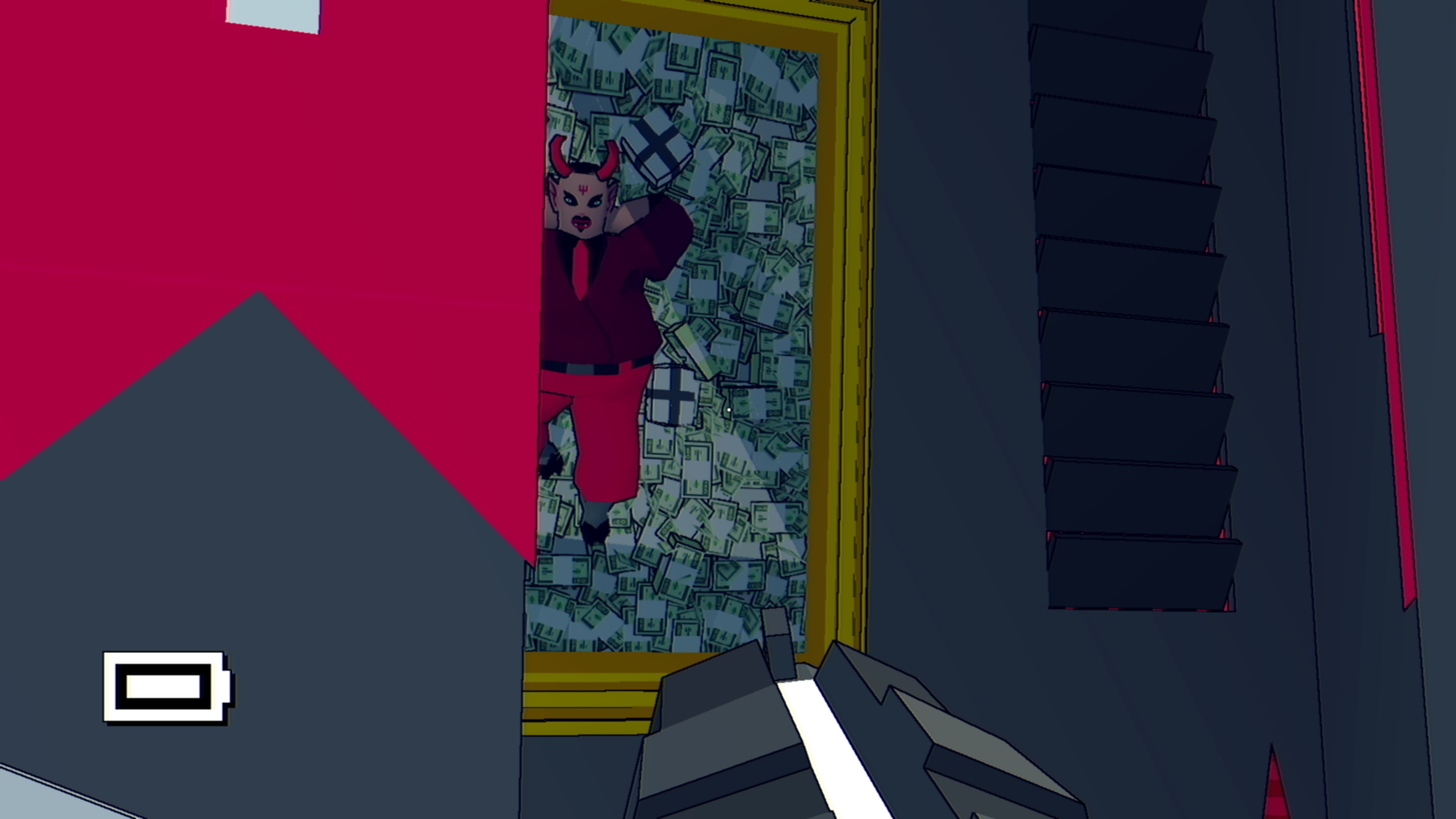
Sometimes, it's a pure skill wall. The final level of High Hell requires you to climb a spiral staircase while avoiding a rotating barrage of lasers with precision and timing I'll never eke out of WASD. (Then again, maybe I should give it another try after dozens of hours of Dead by Daylight.) Mighty No. 9, I just couldn't beat the final boss; I got close one time but fell short. I doubt it'd be impossible to triumph eventually, but I just haven't gotten around to it. With a Hard playthrough of Elite Beat Agents; I almost beat the last set of spinners on "Jumpin' Jack Flash," but then my abilities left me. (This is a common experience with the spinners on this game, I hear.)
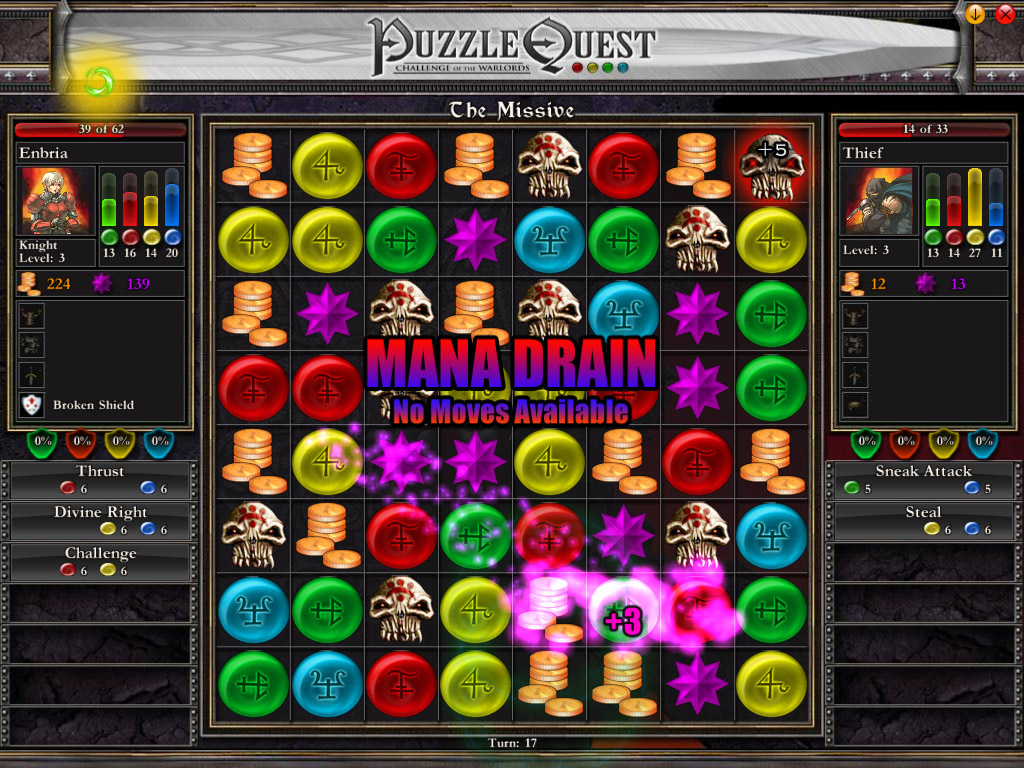
With Puzzle Quest, I again couldn't beat the final boss after numerous tries. It took about a decade, I think, before I took up the game again. I still had my previous save...I'd say "by some miracle," but I have plenty of files from before the turn of the millennium on readily-accessible hard drives, so perhaps it's not that surprising. Regardless, I decided to play through the game anew. I don't know whether it was luck or build, but I actually did beat the final boss handily on about my second try this time. (That's not the final boss up there, obviously, but OG Puzzle Quest won't boot properly on a modern computer; I had to go back to my 100-GB hard-drive Lenovo, which itself won't boot anymore. My character did use that model, at least.)
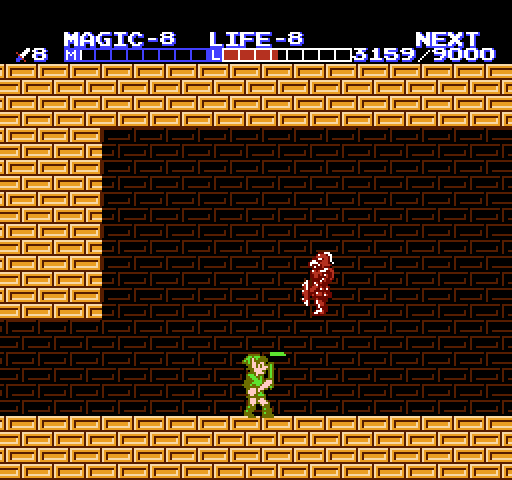
I imagine Zelda II would be a popular choice for this category. I actually have finished the game (upon retrieving it from the trash after snapping the NES cartridge casing and chucking it in there during my attempts at the Great Palace; I'm not a paragon of self-control, and I'd gotten it cheap from a thrift store). A subsequent GBA replay save remains at the Great Palace, though; I didn't put myself wholly through it again.
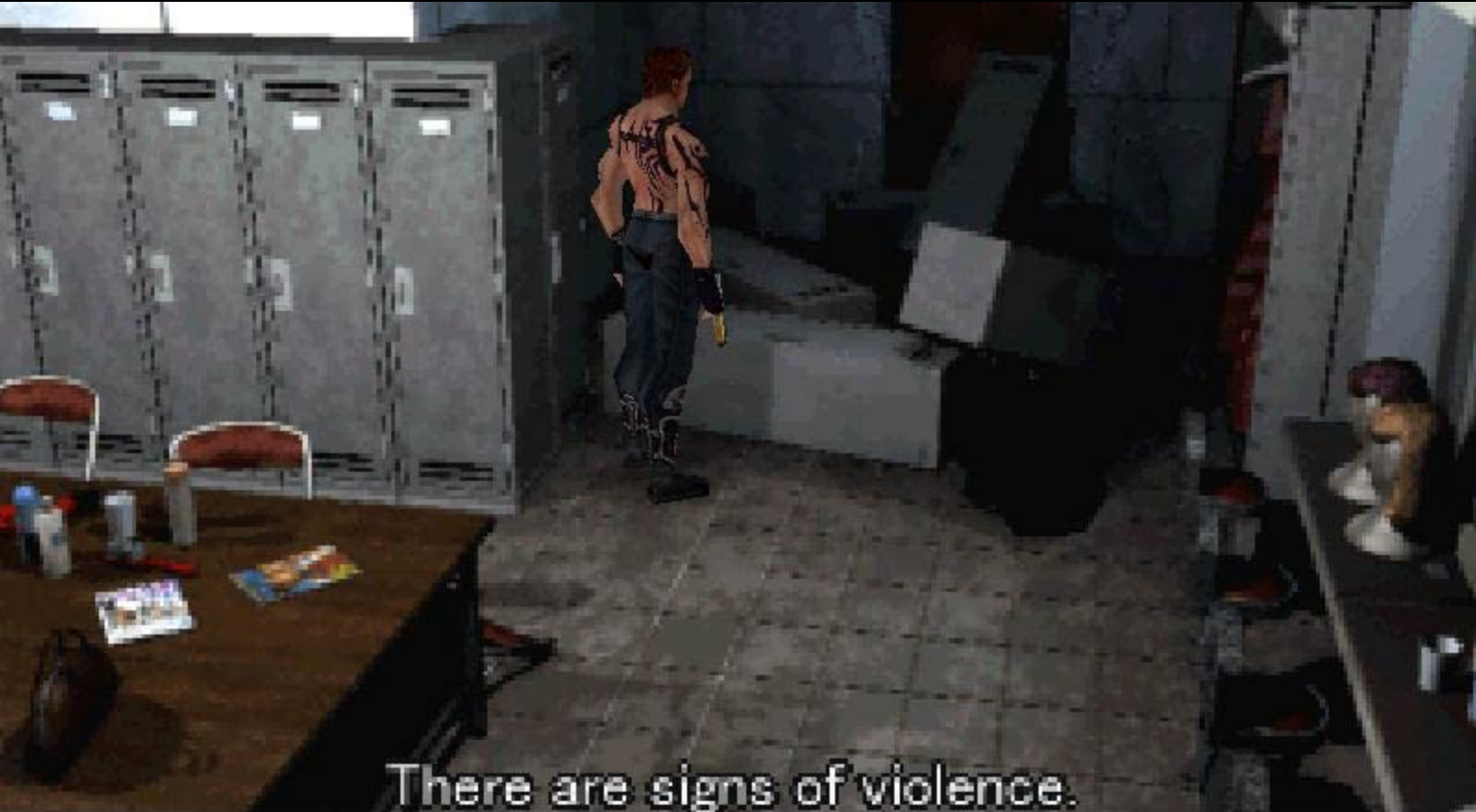
Countdown Vampires is a strange and not particularly ept Resident Evil clone with a vamp protagonist whose look bleeds '90s tribal-tattoo 'tude but whose demeanor is charmingly hapless and helpless. It's not a particularly difficult game for most of its length - not conventionally-difficult, anyway, though the dodgy execution of its more ambitious systems makes things dicey - and while I got a few extra health items, I didn't invest that heavily in the vending machines at which you could spend extra bucks won in casino minigames. The last level is quite a difficulty jump, though, and surviving the extra punch enemies pack really does require a bunch of those health items - of which I had none. The casino system is, naturally, locked away at this point. Though it wasn't a good game, I wanted to see the weirdness of Countdown Vampires through - I'd even downed all the human-turned-vampire enemies with tranq darts instead of bullets for the allegedly-good ending. Unfortunate. (While we're on the subject, since Countdown Vampires is unlikely to come up in conversation casual or otherwise ever again even on a gaming blog, I'll note that I liked the diner/crushed-car junkyard that opens disc 2; it was an unusual locale for survival horror.)

The Infectious Madness of Dr. Dekker is an engaging FMV title where you play a psychologist who takes over a murdered colleague's patient group. The patients' problems are a bit unusual. Like, one seems to be turning into a mermaid, while another keeps getting stuck in a time loop ("I'm having a loop day," he listlessly announces what will be one of many times as he slumps on the therapy couch). Dekker was the first game I played from the recent FMV renaissance, and it made me proud of how far the genre had come from its FMV roots: the performances are really good, the gameplay is original and compelling (you ask the patients questions about their predicaments, typing in your own questions instead of choosing from a preset list, and are rewarded with more information and further story branching with the more effectively you probe), and unraveling the mystery of the patients and what happened to Dekker is intriguing. It's written well, and there's real tension as it reaches its climax.
This may seem odd to classify as a skill-level problem, but I got to the final day with almost but not quite enough information to figure out everything that's going on. The devs engineered the game for multiple playthroughs, but the game is really too involved to go through repeatedly like they expect. As it stands, I care too much about what's going on to get the assuredly-incomplete and substandard ending that awaits me, but I don't know what to do to go down the right path or act on what I do know. (I also got a revelation from another playthrough on a secondary storyline on which I didn't pick up myself at all, and I wouldn't know how to handle that - I want to address it for completionism, but it seems like cheating.) I'm therefore stuck in therapy limbo. I feel bad about it, as I really like the game (that's kind of the problem: I like it too much either to abandon it or to cheat), and I highly recommend it if you enjoy detective stories. Play it with the keyword highlighting, added after-the-fact to please inattentive players, turned off.
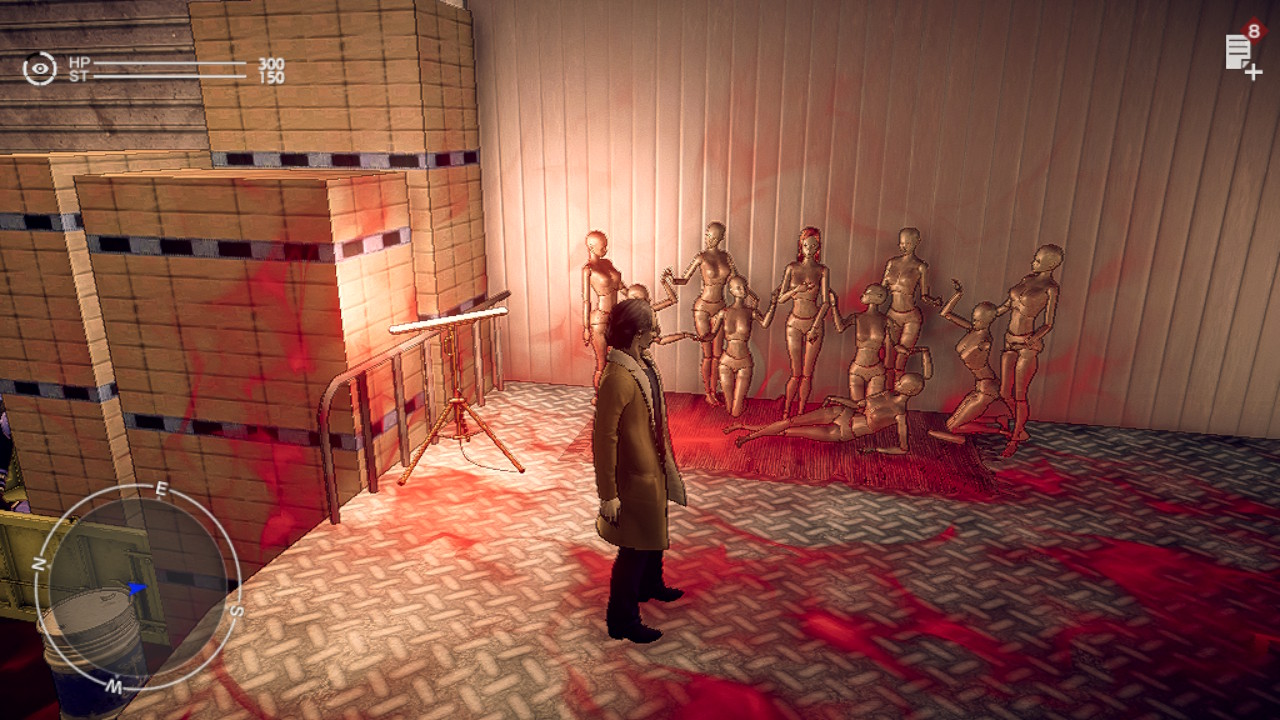
At other times, it's a story reason. You've had enough. You don't like a development. With Deadly Premonition 2, the cutoff was decisive. I hated what happened with Patricia's family; I hated how the story wrecked everything in the service of an execrable character. But then, at the climax, the game wanted you to take that man's hand, and, man, screw that.
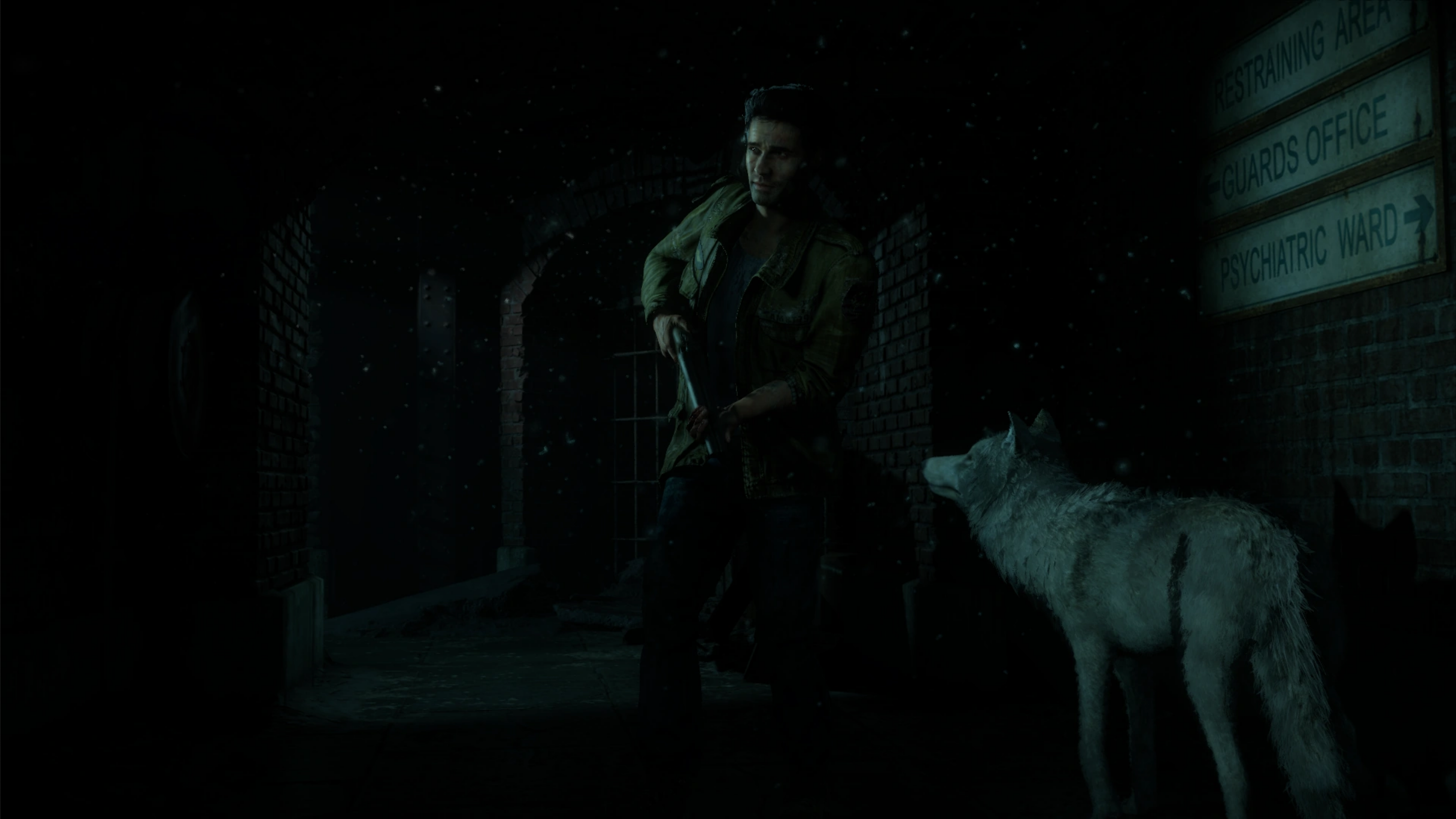
I'd been enjoying Until Dawn despite wasting a few characters - I'd lost Jessica because I took things too slow during the chase, Mark because I tried to save Emily one too many times, and Chris because I failed a crucial shooting QTE. But then came the extremely long gauntlet of QTEs designed to kill Mike's wolf companion, evidently introduced only for you to feel remorse at its death. Though I'm not adept at QTEs, I actually rallied here, pulled off reactions beyond my ability, I almost made it...only to lose it at the very end of a ridiculously protracted sequence and see the wolf get torn apart. I quit out - but the game had merrily autosaved. Oh, too bad you couldn't make it and got the wolf killed! BUT LOOK! It's the whiny girl, headed for a trap patently telegraphed in an earlier chapter! You can save her! And really, fuck off, game. I deleted my save data and didn't look back. (OK, I did look back a bit - it's an intricately-designed game, a real achievement in some respect - but I've ultimately stood by my decision. That design choice was unforgivable.)
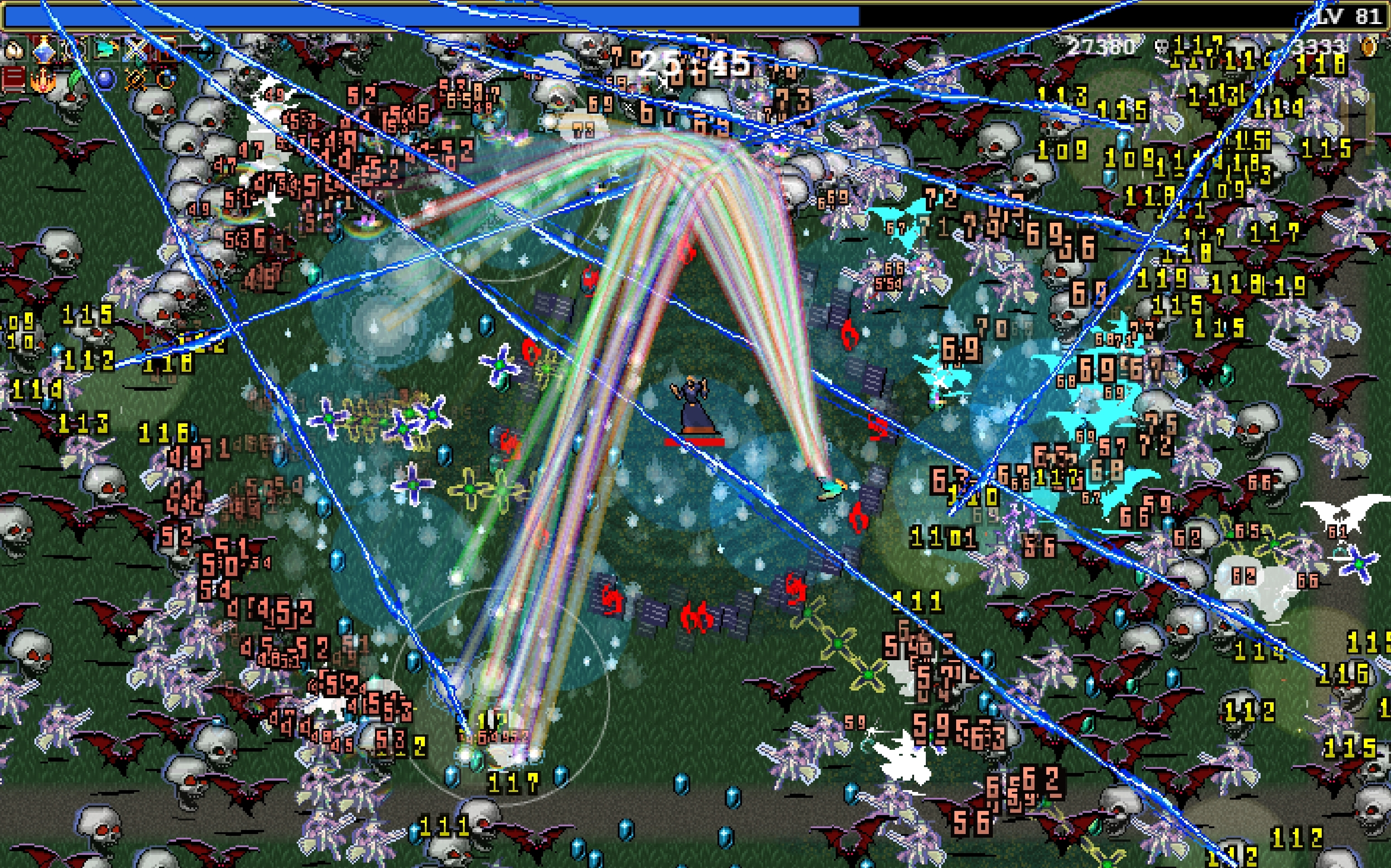
Sometimes, you're just satisfied gameplaywise. Though it's been significantly expanded since I touched it, Vampire Survivors kinda counts: I stopped playing with 42 of what were then 43 achievements obtained. Then I attained the chaos above, and I felt I had hit the game's apotheosis. There was simply nothing more to do. The raison d'être of Vampire Survivors is to create as much onscreen chaos as possible, and at this, I wept, for there were no more pixels to puke out.
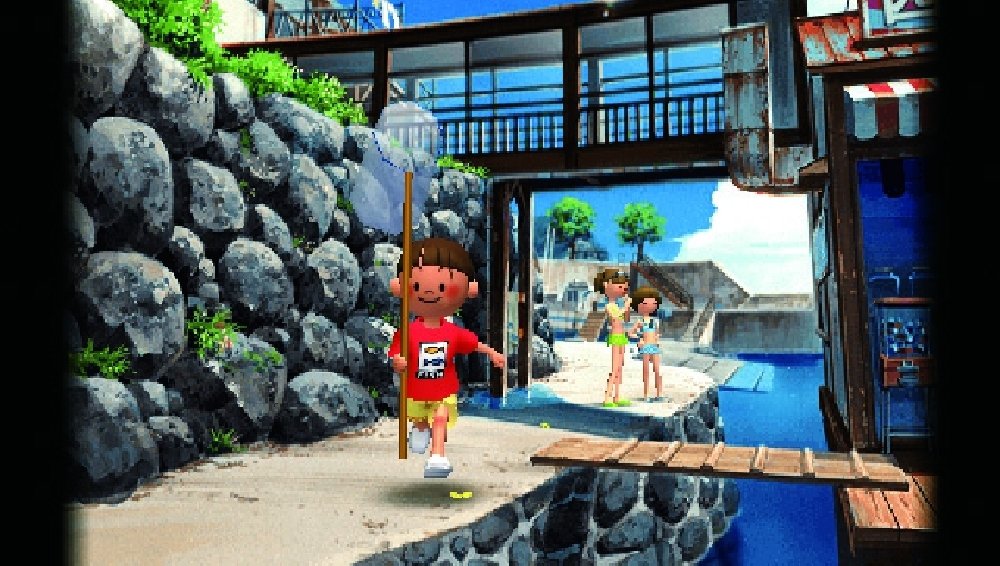
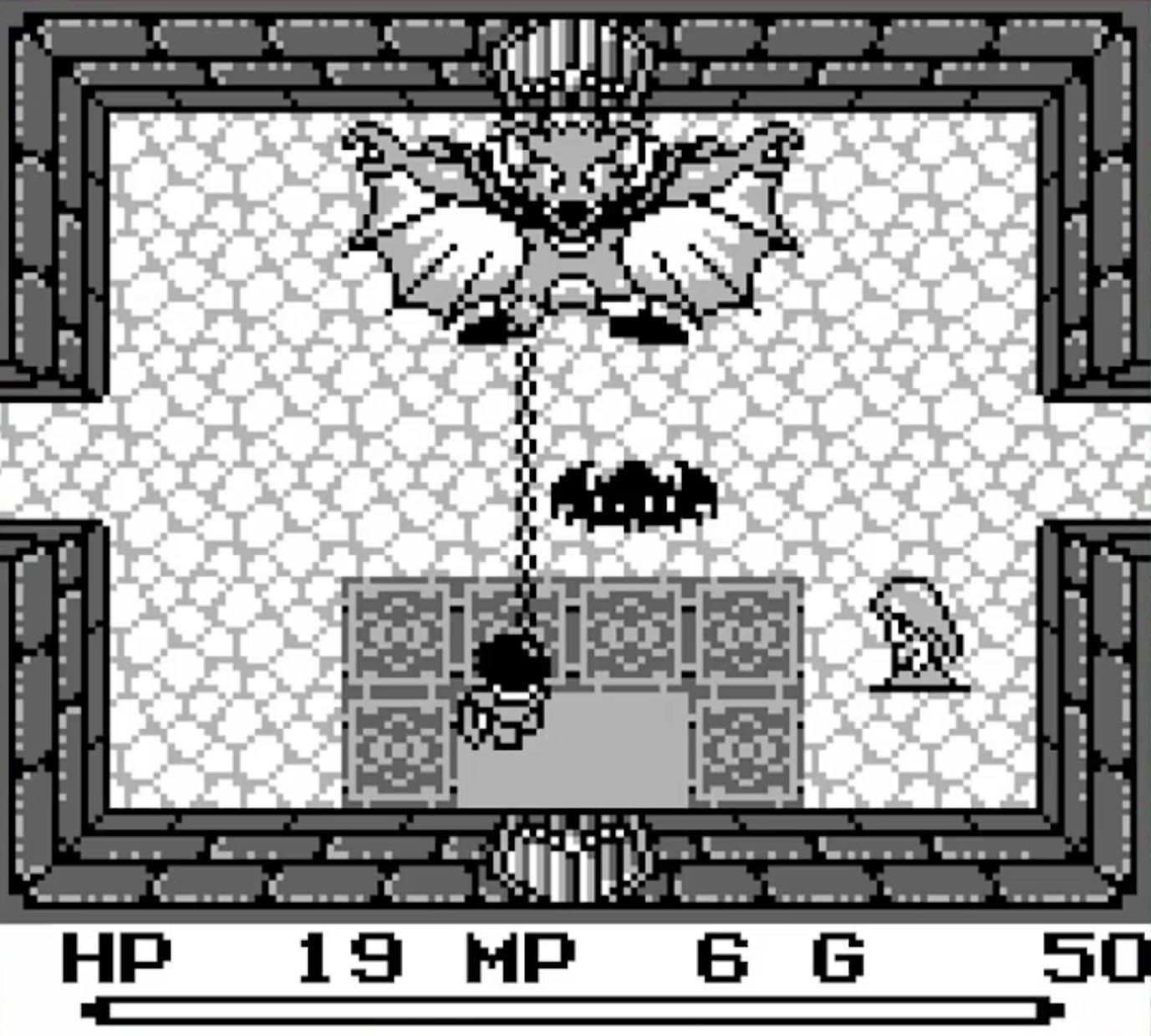
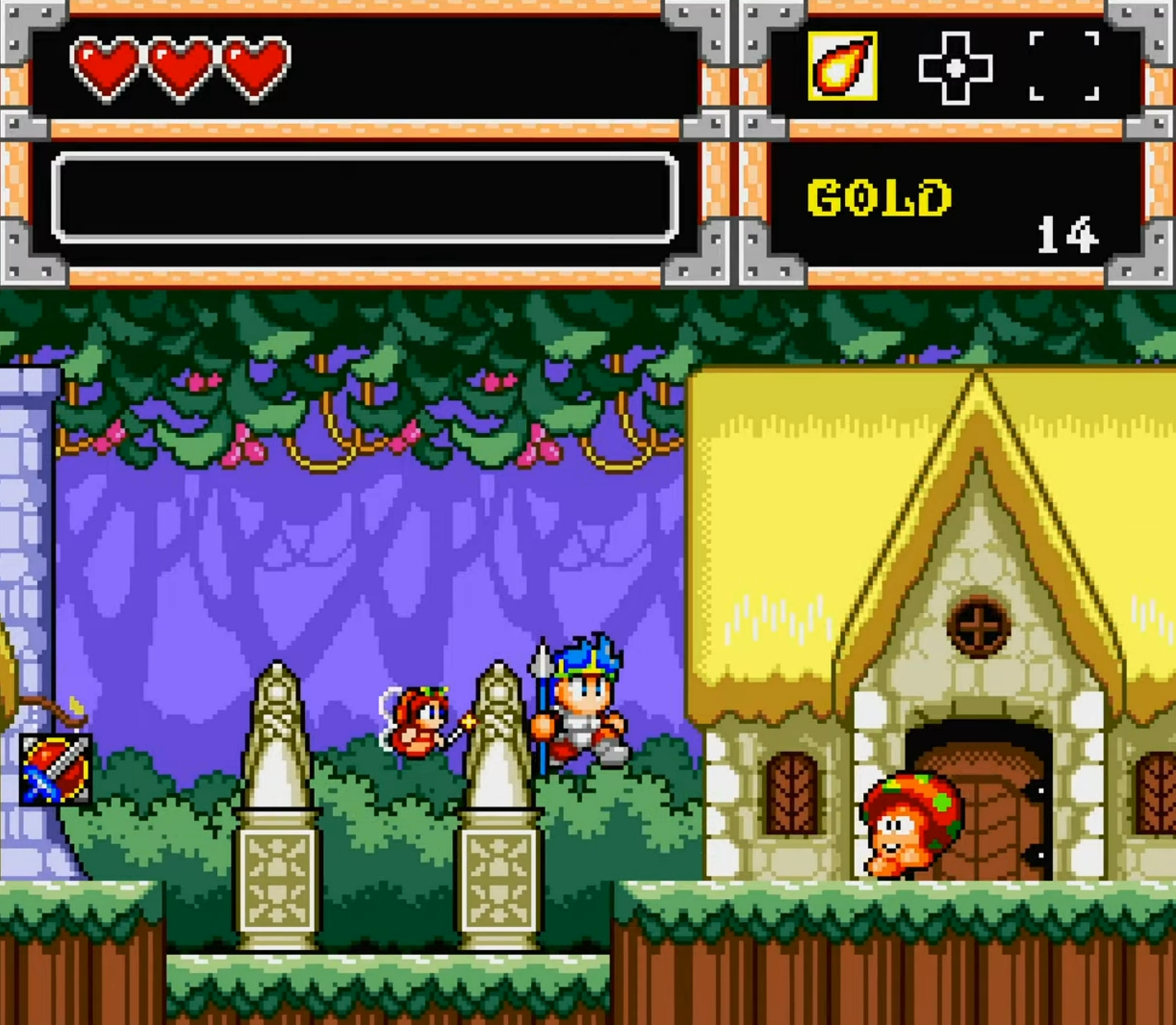
Similarly, I played Wonder Boy in Monster Land for its colorful chibi fairytale aesthetics, but those fade soon enough, and the game provided absolutely nothing to take its place and compel me to continue. I threw in the towel because I didn't want to deal with an endgame ice stage. (Couldn't and didn't want to being distinct terms here.) I know the series - however you want to define it given its mess of a genealogy - is considered foundational in some quarters, but it seems to other action RPGs what Alex Kidd in the Enchanted Castle was to Super Mario.
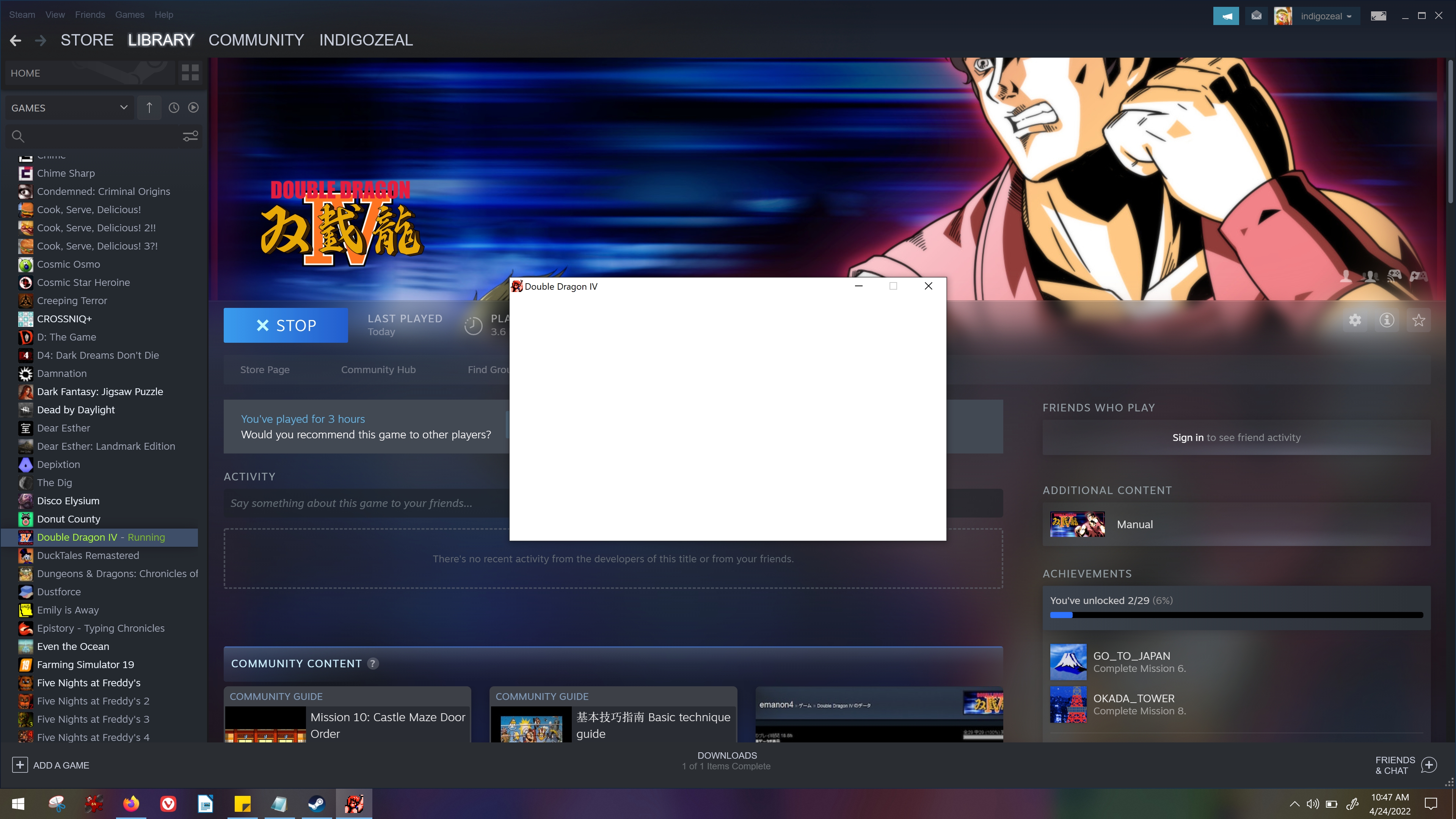
And sometimes, you realize you never wanted what it was serving. I bought Double Dragon IV on impulse soon after it launched, fully-cognizant that it was one of those no-effort retro revivals produced by a license clearinghouse, and almost got to the end. I didn't go back immediately because playing it made me realize that, despite loving beat-'em-ups, I don't actually like Double Dragon's fighting mechanics. They're very stiff and NES-level. Also, they always insist on putting in that one platforming/obstacle course level that no one likes, that the moribund controls handle like a fish handles concrete, and that exists just to eat up lives. They're perfect representatives of the entire Double Dragon design sensibility. I tried to give it another go some time later just for the hell of it, but when it boots, it boots as you see above. Windows 10 is too modern for it.

Finally: sometimes, there are just too many goddamn doors.

